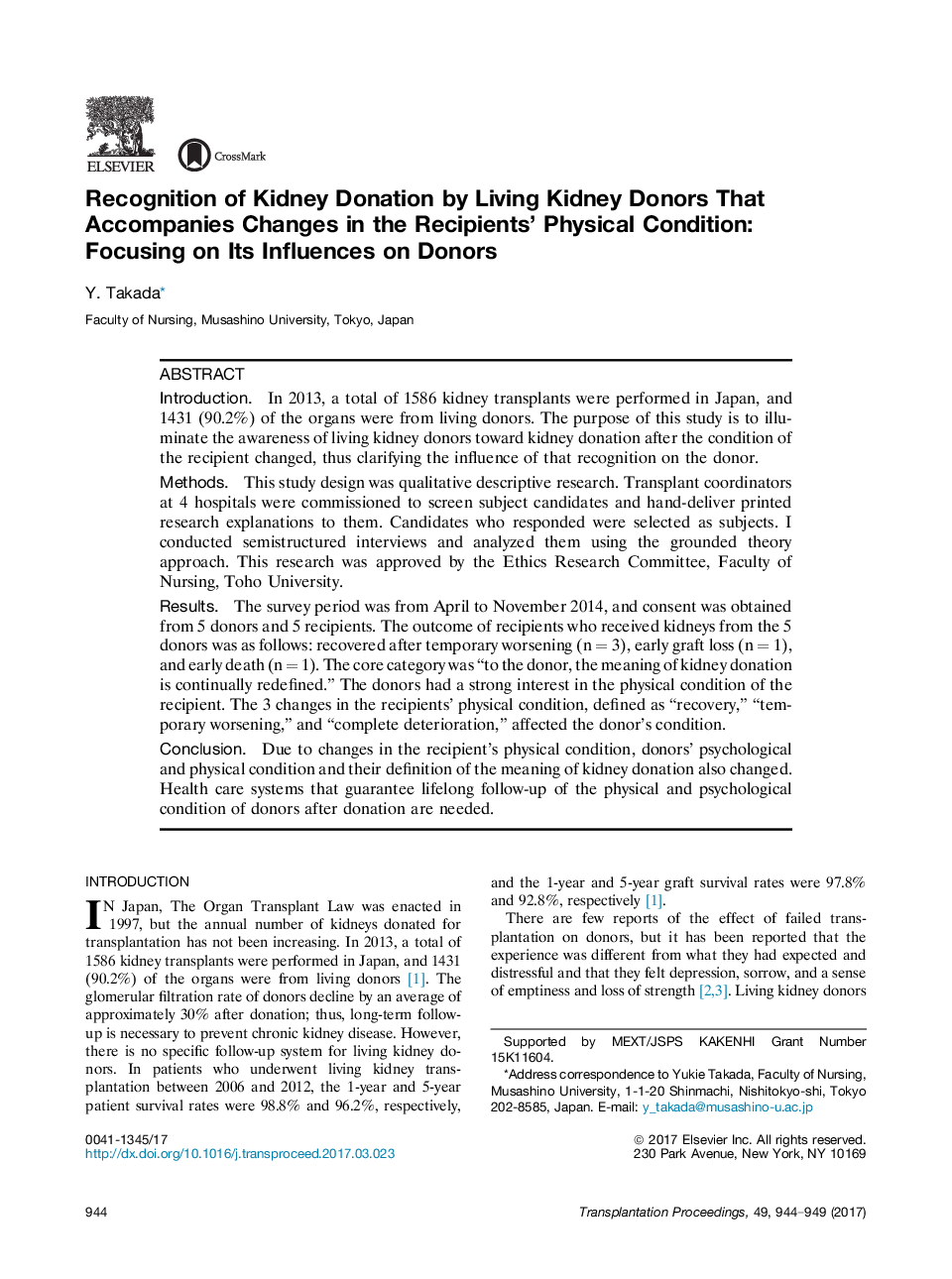| Article ID | Journal | Published Year | Pages | File Type |
|---|---|---|---|---|
| 5728775 | Transplantation Proceedings | 2017 | 6 Pages |
IntroductionIn 2013, a total of 1586 kidney transplants were performed in Japan, and 1431 (90.2%) of the organs were from living donors. The purpose of this study is to illuminate the awareness of living kidney donors toward kidney donation after the condition of the recipient changed, thus clarifying the influence of that recognition on the donor.MethodsThis study design was qualitative descriptive research. Transplant coordinators at 4 hospitals were commissioned to screen subject candidates and hand-deliver printed research explanations to them. Candidates who responded were selected as subjects. I conducted semistructured interviews and analyzed them using the grounded theory approach. This research was approved by the Ethics Research Committee, Faculty of Nursing, Toho University.ResultsThe survey period was from April to November 2014, and consent was obtained from 5 donors and 5 recipients. The outcome of recipients who received kidneys from the 5 donors was as follows: recovered after temporary worsening (n = 3), early graft loss (n = 1), and early death (n = 1). The core category was “to the donor, the meaning of kidney donation is continually redefined.” The donors had a strong interest in the physical condition of the recipient. The 3 changes in the recipients' physical condition, defined as “recovery,” “temporary worsening,” and “complete deterioration,” affected the donor's condition.ConclusionDue to changes in the recipient's physical condition, donors' psychological and physical condition and their definition of the meaning of kidney donation also changed. Health care systems that guarantee lifelong follow-up of the physical and psychological condition of donors after donation are needed.
